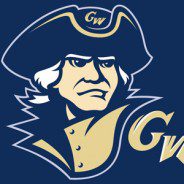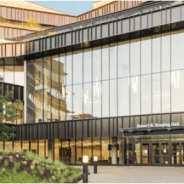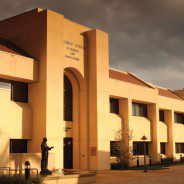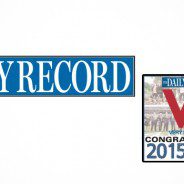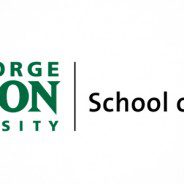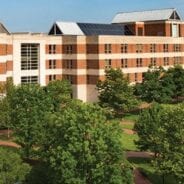Search results for :
Rutgers Business Summer Camp Grows in Popularity
The Rutgers Business School- Newark and New Brunswick offers high school students the opportunity to experience college life, and business curriculum first hand. The program, which was started in 2014, has grown from 18 campers in attendance for the first year to 28 campers this year. The time frame for the program was also increased this year from five days to seven days.
The Business Summer Camp program at Rutgers was designed to provide high school juniors and seniors to learn business basics through experiential learning, business plan competitions and visits to major business locations near the campus. Campers also focus on the skills that are needed to succeed in life through team work, public speaking and interacting with other people.
REGISTER: GWSB Online Info Session on August 5th
Prospective MBAs can join George Washington University School of Business admissions faculty on August 5th for an upcoming online information session to learn more about the GWSB Online MBA. During the 60-minute web-based session, a member of the GWSB team will discuss how a Online MBA can influence your career, expand your abilities, and enable you to pursue different opportunities. Continue reading…
Healthcare Professionals: Healthcare MBA or MHA?
Healthcare professionals who decide to return to school for an advanced degree have one important decision to make- choosing between the Masters in Healthcare Administration (MHA) or the Healthcare MBA. When deciding which program to choose, it is important to know the differences between the two types of programs and how each degree will benefit your future career goals and expectations.
The main difference between the two degrees is the focuses of their curriculums. The MHA degree focuses on the business of the healthcare industry. The MBA degree gives students an extensive but broad insight into the business world as a whole. Healthcare MBA programs do offer students healthcare industry-specific courses, but most programs only require students to complete a few courses to complete the concentration, track, specialization or minor.
Executive MBA
UT Austin Executive MBA Program Structure
The UT Austin Executive MBA program at McCombs School of Business is completed over the course of two years with classes all day on alternating weekends running from 8 a.m. to 5 p.m. on Fridays and Saturdays for four consecutive semesters. Each year starts with a week-long executive seminar in preparation of the year. The year ends with another week-long seminar where students practice and apply what they’ve learned. At the end of the second year this seminar is held at an international location.
Curriculum
The UT Austin Executive MBA curriculum is based on a cohort system, consisting of 42 credit hours worth of classes. Students are put in groups of about five to encourage teamwork and development of leadership skills. The mentor program also assigns each student a mentor from the previous year’s class.
Each student takes the same core classes which cover essential business skills like effective communication, risk and change management and business ethics. Students also complete six elective hours from the following:
Three or six hours of special study courses; three or six hours of graduate coursework selected from the full-time MBA program’s electives; or three hours of the Washington Campus elective, a three day residency program for Executive MBA students taking place in Washington DC concentrating on public policy and its impact on business.
Executive MBA Rankings
• U.S. News & World Report: 26
• The Economist: 38
Class Profile
The current UT Austin Executive MBA has 48 students with an average age of 38.
They have an average of 14 years of work experience and an average GPA of 3.28. Twenty-seven percent of the class hold advanced degrees. Twenty-one percent are female.
Career Statistics
The McCombs School of Business is usually ranked among business schools in the U.S. for the number of MBA graduates who get job offers. The average salary of UT Austin full-time MBA graduates is around $124,965 with a median signing bonus of $29,486.
MBA students at McCombs have access to the Career Management Team. With the help of the Career Management Team, students can connect with McCombs’s alumni network, receive personalized career guidance, and attend networking receptions and career fairs.
Career planning is also built into the curriculum of the full-time MBA. During the first-year students take a class called Strategic Career Planning. This class is meant to prepare students to make career choices and help them achieve their career goals. The class teaches students skills like interview training and marketing and networking techniques.
Tuition, Scholarships, and Financial Aid for the UT McCombs Executive MBA
The program cost for the UT Austin Executive MBA is $149,500. The cost is paid in five installments over the course of the program which are due approximately six weeks before the semester begins. A $2,000 deposit is required once the applicant accepts admission. There is an additional fee of $4,000-$5,000 per semester for non-Texas residents.
The costs include program tuition, registration fees, textbooks, case materials, software for core courses, lodging, and meals during Executive Seminars held in Austin, and lodging and two meals per day at the international seminar (airfare not included). It also includes lunch for the Friday speaker series.
Admissions
Applicants to the UT Austin Executive MBA program at the McCombs School of Business must have a Bachelor’s degree or a comparable degree from a foreign academic institution. The admissions criteria strongly recommend five years of professional experience.
The application process takes place online and applicants must submit a completed application, official transcripts, GRE or GMAT scores, a current resume, one professional recommendation letter and a $200 application fee. Students must also submit two mandatory essays and can submit an additional optional essay as well. A GMAT/GRE waiver is offered for EMBA students.
The first essay is an introduction of the student. It can be completed in one of two formats: a 250 word essay or a one minute video. The second asks the applicant to envision how they would spend their time at McCombs to achieve their goals. The optional essay is an opportunity to petition to waiver test scores or talk about any other concerns that the student wants to address. Test waivers will be considered for applicants with substantial work history or a terminal degree.
International applicants must also submit TOEFL or IELTS scores. Interviews are by invitation only.
2020-2021 UT McCombs Executive MBA Deadlines
Round One – February 2, 2021
Round Two – May 25, 2021
Rolling – June 30, 2021
UT McCombs Executive MBA FAQ’s
How is the university handling the current pandemic?
Activities and classes are primarily online to keep students and staff safe.
What are the predominant industries that EMBA students come from?
Tech, energy, government, banking/finance, consulting, travel/transportation are the top industries represented.
What MS programs are offered at UT?
Masters of Science in Marketing, Masters of Science in Finance, and others are available for those seeking MS programs.
Texas Weekend MBA – Dallas
UT Austin Dallas Weekend MBA Program Structure
McCombs offers a part-time working professional MBA Program option in Houston and Dallas, called the Weekend MBA. The UT Austin part-time MBA offering allows students to pursue an MBA while continuing with their careers. The 48-credit curriculum can be completed over two years, spanning five different semesters. Classes are held on alternating weekends from 4-8 p.m. Fridays, and Saturdays from 8 a.m. to 5 p.m.
Curriculum
The Dallas Weekend MBA program covers integral business values and skills like teamwork and leadership skills, business ethics, effective communication and problem solving abilities. This is a lock-step, cohort-based program that allows students to build a strong business network, and work closely with the majority of their peers in the program. At the beginning of the first semester, students are put into study groups of four to six people. Each student is also assigned a mentor from the previous year’s class to provide guidance. The program is completed over the course of five semesters, including a summer semester with six credit hours’ worth of classes.
Part-Time MBA Rankings
• U.S. News & World Report: 8
Class Profile
The class of 2020 currently has 88 students with an average GMAT score of 642. Their average GPA is 3.35 and they are composed of 28 percent international students and 24 percent female students.
Careers
McCombs School of Business was recently ranked as 11th in the nation for business schools with the highest percent of job offers. About 50 percent of working professional students choose to access On-Campus Recruiting services. MBA students at McCombs have access to the Career Management Team. With the help of the Career Management Team, students can connect with McCombs’ alumni network, receive personalized career guidance and attend networking receptions and career fairs.
Tuition, Scholarships, and Financial Aid
The UT Austin Weekend MBA program costs $23,400 each for five semesters, totaling $117,000 for the class of 2022. This includes tuition and registration fees, all course materials including an iPad, foreign travel insurance, lodging and meals during a global residency, a residency component during the first semester and on select weekends throughout the program, student meals during class weekends, career management advisors and recruiting events, workshops and meetings with career coaches and a guest speaker series. This cost is paid in equal installments over the whole program, usually due six weeks before the semester begins. A $2,000 deposit is required once applicants accept admission.
Admissions
Applicants to the Dallas Weekend MBA program at the McCombs School of Business must have a Bachelor’s degree or a comparable degree from a foreign academic institution.
The application process is completely online. Applicants submit a completed application, official transcripts, GRE or GMAT scores, a current resume, one professional recommendation letter and a $200 application fee. Students must also submit two required essays and may submit one optional essay.
The first essay is an introduction of the student. It can be completed in one of two formats: a 250 word essay or a one minute video. The second asks the applicant to envision how they would spend their time at McCombs to achieve their goals. The optional essay is an opportunity to explain any area of concern with your application.
International applicants must also submit TOEFL or IELTS scores. Interviews are by invitation only.
Application deadlines are as follows:
Round Two – Jan. 28, 2020
Round Three – March 24, 2020
Round Four – May 12, 2020
Texas Full-Time MBA
UT Austin Full-Time MBA Program Structure
UT Austin places emphasis on collaboration with others in its two year, full-time MBA program. Before classes begin, students compete in the Cohort Olympics during an MBA Orientation. This competition gives new students a chance to get to know the others who will be in their cohort. There are 11 required core courses, each of with are worth two or three credits a piece. Students also select from a variety of elective courses and may pursue a concentration if they wish.
Curriculum
The UT Austin full-time MBA curriculum at McCombs begins by giving each student the same fundamentals of business. This is done through the core curriculum of 11 classes, which provide a functional foundation of essential business skills like effective communication and cross-functional problem solving. It simultaneously encourages the student to customize their degree with flexible core elective requirements.
The electives can be used to focus on an academic concentration, but this is not required. There are 20 concentrations, all of which fall under one of the following areas:
Accounting
Finance
Marketing
Management
Business, Government & Society (BGS)
Information, Risk & Operations Management (IROM)
Interdisciplinary concentrations
Dual degree options that allow students to receive an MBA as well as another graduate degree from a different college within the University of Texas at Austin are also available.
Full-Time MBA Rankings
• U.S. News & World Report: 19
• Bloomberg: 21
• Forbes: 37
• Financial Times: 25
• The Economist: 18
Class Profile
The 2020 UT Austin full-time MBA class has 284 students, 38 percent of which are female. The average age of students in the class was 28. On average, students enrolled with an undergraduate GPA of 3.48, a GMAT score of 702, and 5.5 years of professional work experience.
Twenty-four percent of the class is made up of international students.
Career Statistics
The McCombs School of Business is usually ranked among business schools in the U.S. for the number of MBA graduates who get job offers. The median salary of UT Austin full-time MBA graduates is around $115,000 with a median signing bonus of $25,000.
MBA students at McCombs have access to the Career Management Team. With the help of the Career Management Team students can connect with McCombs’s alumni network, receive personalized career guidance and attend networking receptions and career fairs.
Career planning is also built into the curriculum of the full-time MBA. During the first year students take a class called Strategic Career Planning. This class is meant to prepare students to make career choices and help them achieve their career goals. The class teaches students skills like interview training and marketing and networking techniques.
Tuition, Scholarships, and Financial Aid
For the 2019-20 academic year, the estimated cost for the UT Austin full-time MBA program is $49,534 for in-state students and $54,924 for out-of-state and international students. McCombs also estimates an $850 MBA student fee, $2,500 for a laptop, $1,000 for books, and $18,370 for living expenses. The first year’s total cost is estimated to be $72,254 for in-state and $77,644 for international and out-of-state students.
McCombs offers some scholarships and fellowships for new and returning students. Each student is considered for a recruiting scholarship when they apply. It is exclusively merit-based and rewards range from $2,000 to full tuition. They come in the form of cash awards and out-of-state tuition waivers. No additional paperwork is needed for consideration. Continuing Student scholarships allow students to apply during their first year for merit and need-based scholarships based on their academic performance and on-campus involvement during the first year of the program.
Full-time graduate students are eligible for federal loans of up to $20,500.
Admissions
Applicants to the UT Austin full-time MBA program at the McCombs School of Business must have a Bachelor’s degree or a comparable degree from a foreign academic institution.
The application process takes place online and applicants must submit a completed application, official transcripts, GRE or GMAT scores, a current resume, one professional recommendation letter, and a $200 application fee. Students also must complete two essays and an optional third.
The first essay is an introduction of the student. It can be completed in one of two formats: a 250 word essay or a one minute video. The second asks the applicant to envision how they would spend their time at McCombs to achieve their goals. The optional essay is an opportunity to explain any area of concern with your application.
International applicants must also submit TOEFL or IELTS scores. Interviews are by invitation only.
Application deadlines are as follows:
Round Two – Jan. 7, 2020
Round Three – March 31, 2020
Texas Weekend MBA – Houston
UT Austin Weekend MBA Program Structure
McCombs offers a part-time working professional MBA program in Houston. The UT Austin part-time MBA offering allows students to pursue an MBA while continuing with their careers. The 48-credit curriculum can be completed over two years at the Houston campus, located at the University of Texas Health Science Center. Classes are held on alternating weekends from 4-8 p.m. Fridays, and Saturdays from 8 a.m. to 5 p.m with an hour break for lunch.
Curriculum
The UT Austin Weekend MBA program in Houston covers integral business values and skills like teamwork and leadership skills, business ethics, effective communication, and problem solving abilities. This is a lock-step, cohort-based program that allows students to build a strong business network, and work closely with the majority of their peers in the program. At the beginning of the first semester, students are put into study groups of four to six people. Each student is also assigned a mentor from the previous year’s class to provide guidance. The program is completed over the course of five semesters, including a summer semester consisting of six credit hours’ worth of classes.
Class Profile
The class of 2019 currently has 84 students. Students have an average GMAT score of 648. The average GPA of enrolled students is 3.24. The class is composed of 32 percent female students and 68 percent male students.
Career Statistics
The McCombs School of Business is usually ranked among business schools in the U.S. for the number of MBA graduates who get job offers. The median salary of UT Austin full-time MBA graduates is around $115,000 with a median signing bonus of $25,000.
Tuition, Scholarships, and Financial Aid
The UT Austin Weekend MBA program costs a total of $113,755, spread over the course of five semesters, each individually totaling $22,755. This includes tuition and registration fees, all course materials including an iPad, foreign travel insurance, lodging and meals during a global residency, a residency component during the first semester and on select weekends throughout the program, student meals during class weekends, career management advisors and recruiting events, workshops and meetings with career coaches and a guest speaker series. This cost is paid in installments with each payment usually due six weeks before each semester begins. A $2,000 deposit is required once applicants accept admission.
Admissions
Applicants to the UT Austin weekend MBA program at the McCombs School of Business, Houston must have a Bachelor’s degree or a comparable degree from a foreign academic institution.
The application process is completely online. Applicants submit a completed application, official transcripts, GRE or GMAT scores, a current resume, one professional recommendation letter and a $200 application fee. Students must also submit two required essays and may one optional essay.
The the first required essay asks the applicant to explain their motivation for choosing McCombs. The other required essay is an introduction of the student. It can be completed in one of two formats: a 250-word essay or a one-minute video. The optional essay is an opportunity to explain any area of concern with your application.
International applicants must also submit TOEFL or IELTS scores. Interviews are by invitation only.
Application deadlines are as follows:
Round Two – Jan. 29, 2019
Round Three – March 14, 2019
Round Four – May 14, 2019
Graziado Announce Full-time MSHR Program
Graziado School of Business and Management recently announced that they are launching a new full-time Master of Science in Human Resources (MSHR) program, according to a press release from the school. Continue reading…
Smith School Faculty Reveals This Year’s Top-10 Summer Reading List for Business Leaders
The University of Maryland’s Robert H. Smith School of Business recently put together a list of faculty-favorite books in the school’s “12th Annual Top-10 Summer Reading List for Business Leaders” for 2015. These reads are perfect for prospective MBA heading off to business school as well as those who are already climbing up the corporate ladder.
Below is a selection from the list. You can check out the full selection here. Continue reading…
George Mason School of Business: A Way Of Life
Meet the Ragan’s: a business-minded family that has stuck together through the years.
Several generations of the family has worked at the family’s business, Joe Ragan’s Coffee, which Joe Ragan III’s father started in 1966. In addition to the tradition of working at the family business, the Ragan family has also sent six family members to George Mason University. Five out of those six went on to earn business degrees. Continue reading…
Mays Alumnus Chosen for Seed Sumo Incubator
Ohad Nezer, a 2008 graduate of the Mays Business School at Texas A&M University, is spending the summer working on Knocki, a device that senses knocks on surfaces. The device can be attached or embedded into any hard surface to make the surface digitally interactive, and it can also be hard-wired to an electrical system and embedded in a wall in place of light switches. The interactive area of Knocki is so large that entire tables can become interactive, regardless of size, when Knocki is attached to the underside of the table. Proposed uses for Knocki include sending a text message to a user when someone knocks on the user’s front door, and allowing a user to turn off all the lights in their home by knocking on a nightstand. Continue reading…
Texas : The Best Place for an Energy MBA
According to the United States Energy Information Administration (EIA), the state of Texas is the leading state for overall energy production and consumption. The Texas state government has also reported that the state is a leading producer, importer and refiner of oil and gas products. The success of the energy industry in the state has been largely attributed to the education and training that the industry’s professionals have received.
In the last few years, the renewable energy industries have expanded all across the state of Texas. Although the industry has expanded, it is still evolving across all sectors. As the industry expands, it is important for professionals in the energy industry to be the most educated and trained on the most up to date successful management practices.
Sellinger School of Business Alumni Named to Daily Record’s VIP List
Baltimore’s Daily Record named one current Loyola University Maryland Sellinger School of Business MBA and one MBA alum to the newspaper’s 2015 VIP List. The annual list recognizes Maryland leaders under the age of 40 based on their professional accomplishments, commitment to their communities and their accomplishments.
“Our VIPs are the ones to watch at law firms, companies, hospitals, nonprofits and universities,” according to The Daily Record website. Continue reading…
George Mason School of Business and College of Education Set to Launch Executive Chief Learning Officer Program
George Mason University’s School of Business and the College of Education and Human Development has announced its new Executive Chief Learning Officer program, making Mason one of a handful of colleges to offer a program dedicated to the quickly expanding role of the chief learning officer in the business world. What’s a chief learning officer?
Roy Hinton, the business school’s associate dean of executive education, called them C-suite members who are “focused on the development of human capital.” Continue reading…
DePaul Names Charles Wurtzebach Real Estate Chair
Charles Wurtzebach has been named as the new chair of the Department of Real Estate and as the Douglas and Cynthia Crocker Endowed Director of the Real Estate Center at DePaul University, according to a news release on the school’s website. Wurtzebach kicked off his three-year dual appointment in July, succeeding Susanne Cannon, the founder of the department and center, who retired earlier this year. Continue reading…
Benefits of Executive MBA Programs for Managers
There are many program options when it comes to choosing the right MBA. Depending on your work schedule and personal commitments, as well as your amount of professional working experience, a part-time or full-time program are both good options. Prospective MBA students also have the option to complete an Executive MBA program.
Executive MBA programs are designed for mid-level managers and executives who have five or more years of management experience. There are many benefits of completing an Executive MBA program rather than a regular part-time MBA as an experienced business manager. It is a great type of program for those looking to build upon the business skills they have learned over years of experience as well as a way to learn new skills and gain knowledge on new markets and strategies.
Full-Time MBA
University of Maryland R.H. Smith School of Business Full-Time MBA Program Structure
The University of Maryland R.H. Smith School of Business full-time MBA program primarily offers daytime classes. The program offers one intake per year, and classes begin during the fall semester. Students usually complete the program in an average of 21 months.
Curriculum
The University of Maryland R.H. Smith full-time MBA program encompasses 54 credits taken over a two-year period. Students are broken down into small groups to hone their team problem-solving skills and help optimize learning.
Throughout the core courses, students explore how globalization, entrepreneurship and technology are changing business practices, as well as build critical management skills in leadership, teamwork, integrative analysis, and oral and written communication.
Once full-time MBA students complete the core classes required to graduate in College Park, they may choose to take elective courses in College Park, Baltimore, Shady Grove, or Washington D.C. Students can choose from a wide range of electives in traditional and cross-functional areas, selecting courses that meet their professional goals. Students can pick a Career Track to specialize in; options include Marketing, Finance, Supply Chain, General Management, Consulting and Analytics. Students can also pick courses in an Area of Interest such as Social Value, Global Business or Innovation and Entrepreneurship.
There are multiple opportunities for international study while completing the full-time MBA. Smith offers faculty-led trips, semester exchange programs and international consulting projects.
Class Profile
The most recent University of Maryland R.H. Smith full-time MBA program class was 63 percent male and 37 percent female. Sixty-five percent of matriculated students are U.S. citizens, while 35 percent identify as international. On average, students are 30-years old when they begin the program and have 6 years of professional experience. The average GMAT score of full-time students is 640, while the average undergraduate GPA earned by full-time students is 3.26.
Careers
Career services offered to graduate students at UMD Smith include career coaching, major exploration and career direction, self-assessments, developing a job search plan, HireSmith online recruiting system/job database, finding an internship, resume and cover letter advice, networking, interviewing skills, evaluating and negotiating job offers, mock interviews, peer-to-peer mentoring, on-campus recruiting, target job search management technology and soft skill development.
Over 87 percent of MBA students accept offers of employment within six months after graduation from UMD Smith. The average starting compensation for recent Smith graduates is $114,845.
Tuition & Financial Aid
The University of Maryland R.H. Smith full-time MBA degree tuition per year is estimated at $44,766 for Maryland state residents and $53,946 for out-of-state students. This is based on a 27 credit load per year (54 total credits make up the program) and includes a one-time MBAA fee of $700 and university fee of $769 per semester.
The school awards scholarships based on scholastic merit, evidence of leadership, GMAT scores and work experience.
Teaching assistantships and research positions are available to help students pay for their studies, as well as receive a stipend. Students awarded graduate assistantships receive a partial tuition waiver, a stipend for 180 hours of work per semester and also pay the equivalent of in-state tuition rates.
U.S. citizens and permanent residents applying to the UMD Smith full-time MBA program are eligible for federal Stafford and Graduate PLUS loans, as well as private loans.
Admissions Procedures
Applicants to the MBA programs must have completed a four-year degree or its equivalent for admission.
To apply to the UMD Smith full-time MBA program, applicants must submit a completed application form, all college transcripts from degree-granting and non-degree-granting institutions, a current résumé and one letter of recommendation. The school also requires applicants to complete two essays about their leadership experiences and goals. Applicants must also send in their GMAT or GRE scores and a nonrefundable $75 application fee.
Non-native English speaking applicants are strongly encouraged to include a photocopy of their TOEFL or IELTS scores with the application materials.
Application Deadlines
Full-time MBA deadlines at UMD Smith are as follows:
| Application Deadline | Decision Notification Date |
| October 1, 2020 | December 23, 2020 |
| November 1, 2020 | January 15, 2021 |
| December 15, 2020 Scholarship priority deadline for international candidates. |
March 15, 2021 |
| January 15, 2021 Scholarship priority deadline for domestic candidates. |
April 15, 2021 |
| March 1, 2021 | May 1, 2021 |
| April 30, 2021 | Rolling |
Financing Your MBA, Part II
This post has been republished in its entirety from original source clearadmit.com.
In the first of our multi-part series on financing your MBA, we took a look last week at the costs involved in attending a top-tier business school. Now, with a better handle on how much money you’ll need, let’s start looking at where that funding will come from.
Students typically rely on a mixture of savings, fellowships and scholarships, employer or outside assistance, and loans to meet the cost of an MBA program. According to the GMAC 2015 Prospective Student Survey, domestic applicants from ages 24 to 30 broadly estimate that they will rely on personal savings to finance 13 percent of their education, loans for 30 percent, and scholarships, grants or fellowships for 16 percent. Other anticipated sources of aid include parental support, spousal or partner earnings and employee assistance. Continue reading…


